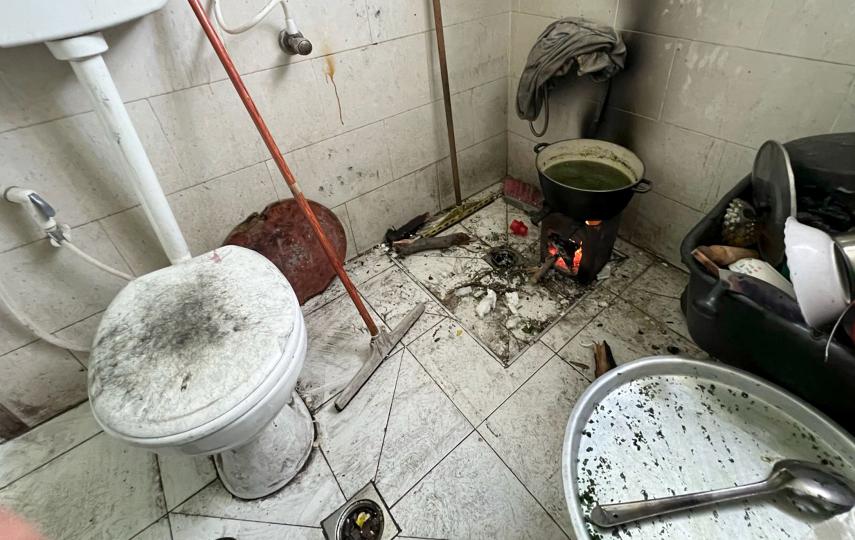DAKAR
Cholera has killed 500 people across West Africa and UN officials fear the death toll will rise as cash-strapped health services struggle to cope, heavy rains continue, and populations start moving about to find work during the harvest season.
The World Health Organisation said on Thursday that 31,259 cases of cholera had been reported in nine West African countries so far this year. The waterborne disease, which can kill within 24 hours by inducing severe vomiting and diarrhoea, has also claimed 488 lives.
And the end is not yet in sight.
"If we look at this year's trends, the figures are still going up in many countries," John Mulangu, a senior regional advisor for the WHO, told a press conference in Dakar.
"If cholera is not brought under control in certain regions, we will soon be talking of... 100,000 cases," he said. "And hospitals and health centres will be overwhelmed."
Although cholera outbreaks flare up every year in impoverished West Africa, where heavy rains flood latrines and contaminate wells, UN experts says the situation this year is particularly bad.
"Last year we were not on this scale. The problem is getting worse," Mulangu said.
Poverty forces many West Africans to move around to find employment, sometimes heading elsewhere in their own country to take on seasonal harvesting work, sometimes crossing into neighbouring wealthier countries to get higher prices for their wares. Movement helps cholera to spread.
"We are about to enter the harvest season where people will be moving around," said Herve Ludovic de Lys, the head of OCHA's West Africa office, told reporters.
"The main goal is to halt the transmission of this disease," he said. "It's not business as usual. This crisis needs a rapid response."
Burkina Faso, Cote d'Ivoire, Guinea, Guinea-Bissau, Liberia, Mauritania, Mali, Niger and Senegal have all been hit by cholera epidemics and the WHO warned on Thursday that more countries were at risk.
"Outbreaks are likely to spread to Central Africa -- Nigeria, Cameroon and Chad -- in the next weeks," it said.
The most worrying cholera epidemic at the moment is in Guinea-Bissau, where the disease has been raging for the last three months without showing any sign of slowing.
The health ministry said on Thursday that 11,192 cases of cholera had been recorded and 224 people had died since mid-June in the former Portuguese colony, which is struggling to recover from a 1998-1999 civil war and years of subsequent political instability.
Authorities in Guinea-Bissau have banned all traditional ceremonies and put a stop to water and food being sold at the markets in bid to stop the epidemic spiralling.
The government, which needs the international community's help just to pay state salaries every month, launched a cholera appeal for $104,000 in early August, and this week asked donors for another 129,000 euros ($160,000) worth of medicines and equipment.
France, Portugal and China have so far stumped up cash and supplies but aid experts say more is needed.
"The action so far has been largely inadequate. There are not enough resources. We need money and equipment to support the government in their efforts," de Lys said.
In the eight other cholera-stricken countries, governments have yet to issue appeals.
This article was produced by IRIN News while it was part of the United Nations Office for the Coordination of Humanitarian Affairs. Please send queries on copyright or liability to the UN. For more information: https://shop.un.org/rights-permissions




